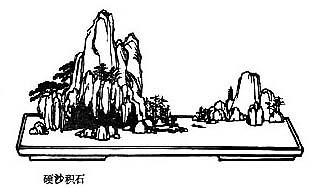Sun Zi 
 – L'Art de la guerre
– L'Art de la guerre
La stratégie chinoise ou comment s'informer, estimer, diviser, détourner, tromper, et vaincre « sans coup férir ». Tr. Amiot (fr) et Giles (en).
De la concorde et de la discorde
Sunzi XIII. 1.
Sun Tzu dit : Si, ayant sur pied une armée de cent mille hommes, vous devez la conduire jusqu'à la distance de cent lieues, il faut compter qu'au-dehors, comme au-dedans, tout sera en mouvement et en rumeur. Les villes et les villages dont vous aurez tiré les hommes qui composent vos troupes ; les hameaux et les campagnes dont vous aurez tiré vos provisions et tout l'attirail de ceux qui doivent les conduire ; les chemins remplis de gens qui vont et viennent, tout cela ne saurait arriver qu'il n'y ait bien des familles dans la désolation, bien des terres incultes, et bien des dépenses pour État. Sept cent mille familles dépourvues de leurs chefs ou de leurs soutiens se trouvent tout à coup hors d'état de vaquer à leurs travaux ordinaires. Les terres privées d'un pareil nombre de ceux qui les faisaient valoir diminuent, en proportion des soins qu'on leur refuse, la quantité comme la qualité de leurs productions. Les appointements de tant d'officiers, la paie journalière de tant de soldats et l'entretien de tout le monde creusent peu à peu les greniers et les coffres du prince comme ceux du peuple, et ne sauraient manquer de les épuiser bientôt.
Amiot
Sun Tzu said: Raising a host of a hundred thousand men and marching them great distances entails heavy loss on the people and a drain on the resources of the State. The daily expenditure will amount to a thousand ounces of silver.1 There will be commotion at home and abroad, and men will drop down exhausted on the highways.2 As many as seven hundred thousand families will be impeded in their labor.3
Giles XIII.1.

L'Art de la guerre – Sun Zi XIII. 1. – Chinois off/on – Français/English
Alias Sun Tzu, Sun Wu, Sun Tse, Sunzi Bingfa, Souen Tseu, Souen Wou, 孫武.
Le Canon des Poèmes, Les Entretiens, La Grande Étude, Le Juste Milieu, Les Trois Caractères, Le Livre des Mutations, De la Voie et la Vertu, 300 poèmes Tang, L'Art de la guerre, Trente-six stratagèmes
Bienvenue, aide, notes, introduction, table.
Index – Contact – Haut de page
